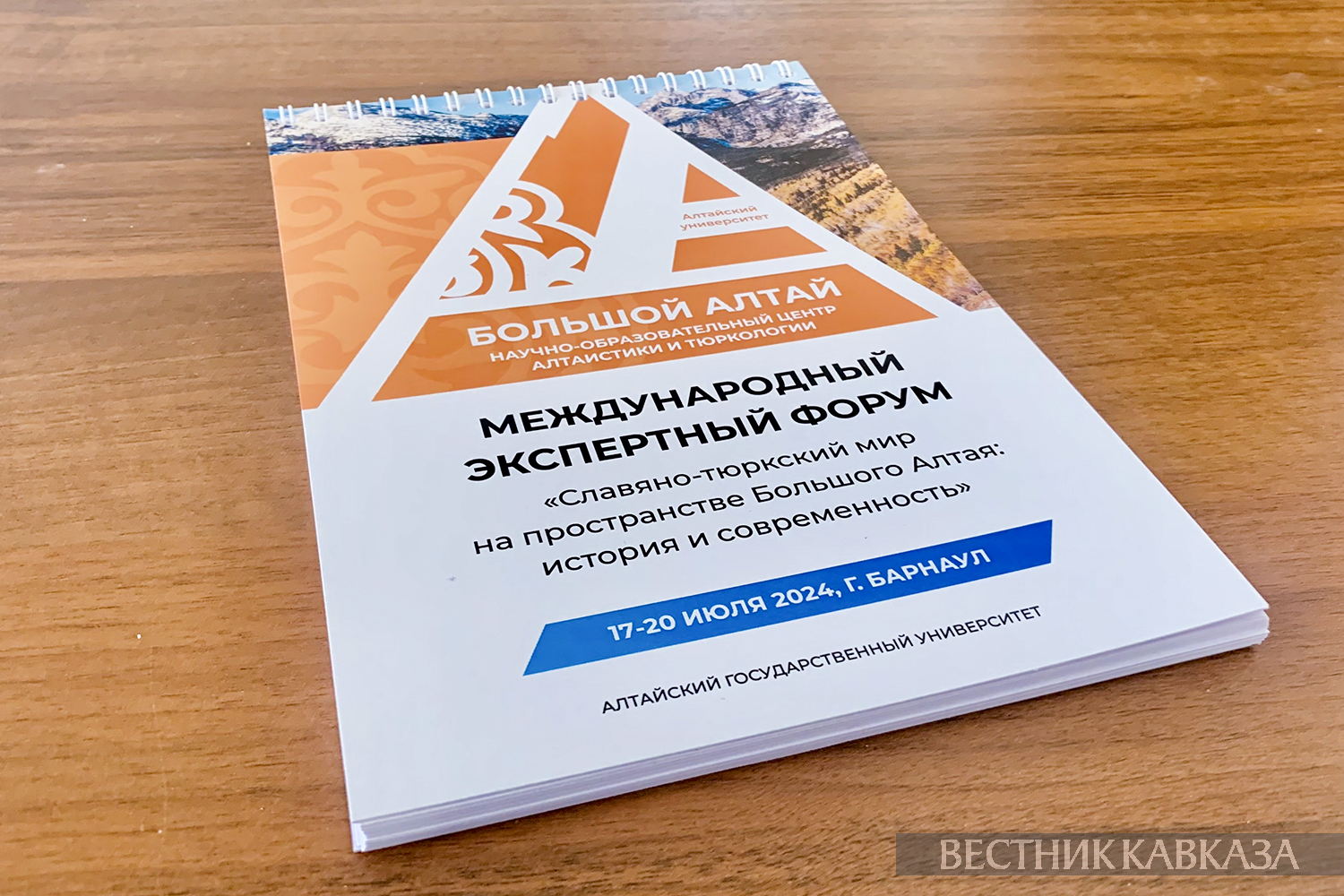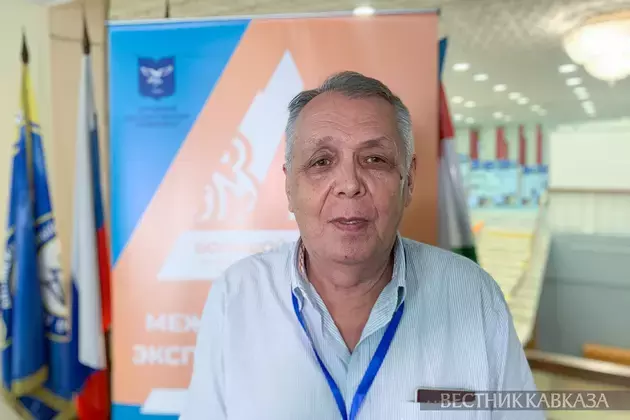The international expert forum "The Slavic-Turkic World in the Greater Altai Space: History and Modernity" is taking place in Barnaul. Leading researcher at the Institute of Oriental Studies of the Russian Academy of Sciences, Doctor of Historical Sciences, Professor Alexander Kadyrbaev, told Vestnik Kavkaza about Slavic-Turkic unity.
- Alexander Shaydatovich, today, we have heard many interesting speeches about historical studies of the evolutionary processes of the Slavic-Turkic world, the archaeological culture of the early medieval Turks of Central Asia, the ethnocultural interaction of the Turks and Slavs, and about common linguistic and cultural values. What is the essence of the concept of the Slavic-Turkic world?
- The Concept of the Slavic-Turkic World has two components: political and scientific. They compete with each other. We talked a lot about science today. As for the political one, it is due to the fact that the Slavic and Turkic peoples make up, as the director of the Institute of Oriental Studies Alikber Kalabekovich Alikberov said, 96% of the population of our Russian state. Therefore, the continued existence of our country depends on the relations between these two largest groups of peoples, which are the main backbone of our state.
This is not an invention of today. The union of the Slavic and Turkic peoples runs through the entire history of the Russian state, starting from the time when this state was first born. Slavic-Turkic relations determined the stability of such a multidimensional phenomenon that we know as Russian civilization.
- What is the importance of this concept today?
- Its importance is in understanding each other's interests, in developing a common cultural concept on the path of rapprochement, and not separation or opposition of seemingly different cultures and languages. The intention to seek common ground is dictated by the very life of the state. Otherwise, the Russian state will face the threat of very big shocks.

- How would you characterize Russia's relations with the countries of the Turkic world?
- According to the UN, there are officially six countries of the Turkic world. Starting with the Turkish Republic and ending with the five Turkic states formed after the collapse of the Soviet Union, Azerbaijan, Kazakhstan, Turkmenistan, Uzbekistan and Kyrgyzstan. They all maintain diplomatic relations and fairly stable contacts. Despite all the contradictions, even crises, the relationship is quite strong. The rulers of these two states have always found compromises, including Turkish President Erdoğan and Russian President Putin.
Russia's relations with the former Soviet Union's countries are much closer, which is due to long-term historical ties, being part of one state - the Soviet Union, and previously the Russian Empire. Problems, of course, exist, and they should also be discussed. Both in Russia and in the countries of the Turkic world there were quite a lot of irresponsible elements who occupied important positions, whose statements did not contribute to the strengthening of relations between our countries. But all this can be overcome.
In general, our relations are close enough. Despite all the contradictions, they tend to further develop, because this is a question of life, the existence, first of all, of the Turkic-speaking Central Asian states. Russia is organically connected with the Turkic world, so relations with these countries are beneficial for it. Especially in the modern world, when Russia has entered into confrontation with the West.
- How do you assess relations between Russia and Azerbaijan?
- Relations with Azerbaijan are on a historic rise. This fact has caused an intensification of confrontation with Armenia. In the struggle between Armenia and Azerbaijan over territories that belong to Azerbaijan under international law, Russia took a balanced position, which caused misunderstanding among the Armenian leadership and even the Armenian public. But from the point of view of compliance with international law, Russia's position is impeccable. Therefore, relations between Azerbaijan and Russia are quite strong and stable. They have a further tendency to improve. Moreover, much depends on personal contacts between the leaders of the two countries, Azerbaijani President Ilham Aliyev and Russian President Vladimir Putin.






